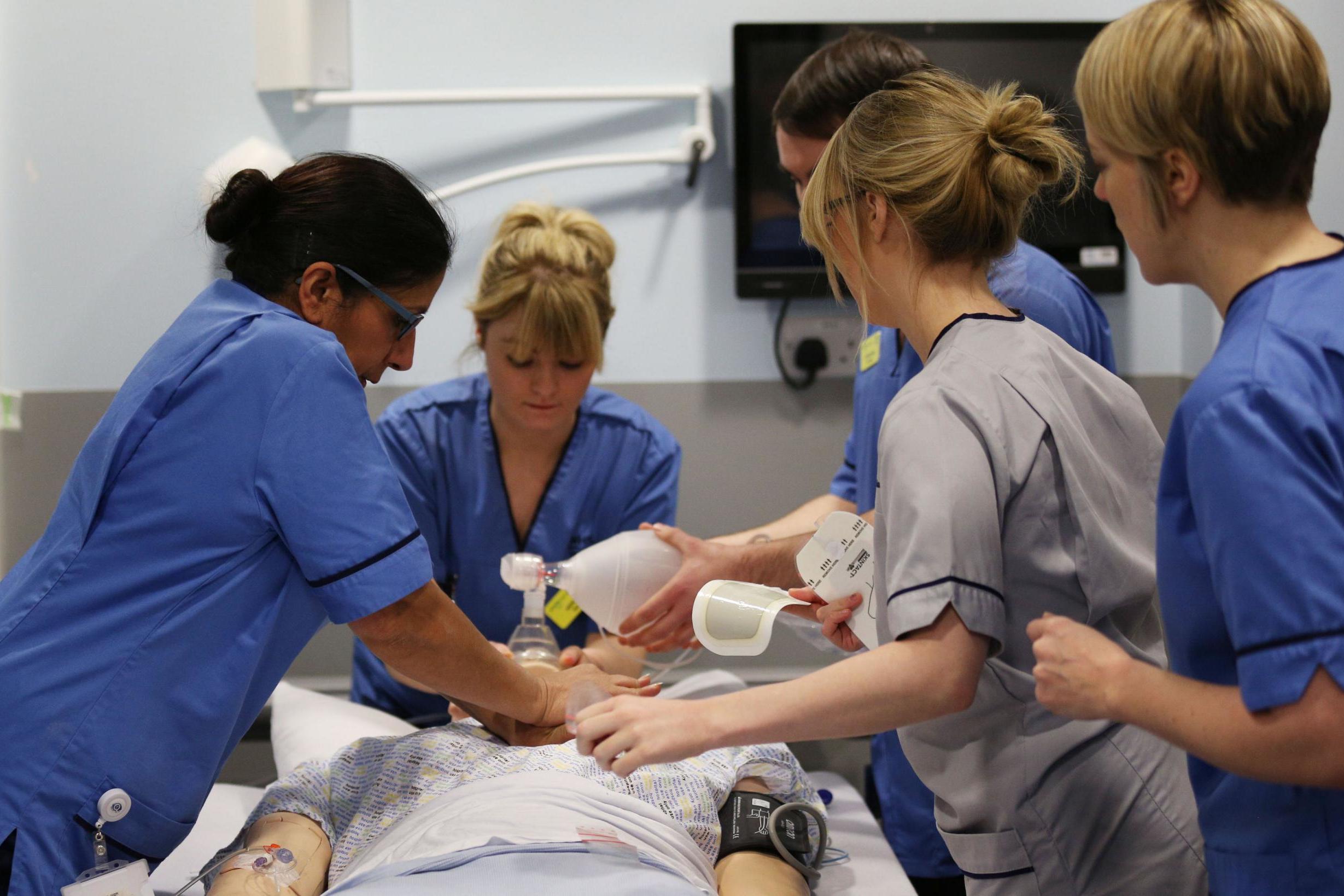Coronavirus: National charity backs legal action on do not resuscitate orders
Exclusive: ‘I was very surprised to see a DNR form stating this had been discussed with my husband and myself. Absolutely no such thing occurred’

Your support helps us to tell the story
From reproductive rights to climate change to Big Tech, The Independent is on the ground when the story is developing. Whether it's investigating the financials of Elon Musk's pro-Trump PAC or producing our latest documentary, 'The A Word', which shines a light on the American women fighting for reproductive rights, we know how important it is to parse out the facts from the messaging.
At such a critical moment in US history, we need reporters on the ground. Your donation allows us to keep sending journalists to speak to both sides of the story.
The Independent is trusted by Americans across the entire political spectrum. And unlike many other quality news outlets, we choose not to lock Americans out of our reporting and analysis with paywalls. We believe quality journalism should be available to everyone, paid for by those who can afford it.
Your support makes all the difference.A national charity has announced it will support legal action against health secretary Matt Hancock and his refusal to intervene in the use of do not resuscitate (DNR) orders during the coronavirus pandemic.
Compassion in Dying has backed the action by Kate Masters whose lawyers have threatened the secretary of state with a judicial review if he continues to avoid setting out national guidance on when and how DNR decisions should be made.
A DNR is a medical decision and does not need the consent of patients, but judges ruled it would be a breach of human rights if one was put in place without the knowledge of the patient or their family.
Davina Hehir, the charity’s director of policy, told The Independent: “The coronavirus pandemic has highlighted and exacerbated ongoing problems concerning the lack of accurate and accessible national guidance regarding CPR, which must now be addressed as a matter of urgency.”
There have been multiple reports since the start of the coronavirus outbreak of GPs imposing “blanket” DNR orders on care home residents or those who are elderly without an assessment of each patient.
Some patients have been telephoned out of the blue by doctors they do not know and have never seen.
Kate Masters family won a landmark ruling at the Court of Appeal in 2014 granting patients the right to be consulted about decisions to impose a DNR notice on their medical records.
She is now bringing legal action against the government via law firm Leigh Day, arguing the secretary of state should use emergency powers to set out clear rules and his decision to delegate policies to local areas is fuelling breaches of the law and violations of patient rights.
Compassion in Dying has written to the health secretary to share its support for national guidance and included examples it has received from callers to its helpline.
Between 2017 and 2019, approximately 7 per cent of all queries to the free, nurse-led information line was linked to resuscitation.
Davina Hehir said: “We receive calls from people who have discovered DNRs on their or their loved ones’ medical notes without any explanation, leading to understandable distress.”
One caller said she discovered a DNR in a bag given to her after her husband was discharged from hospital. She said: “I was very surprised to see that a DNR was enclosed with a form stating that this had been discussed with my husband and myself. Absolutely no such thing occurred.
“My husband was fully aware of everything that was going on and I would certainly have remembered such a conversation. I’m not suggesting that a DNR was inappropriate at a later stage, but it came as a real shock to read it without any warning.”
The charity said many callers wanted to refuse CPR but felt ignored.
One caller said: “I am 87 and asked my GP for a DNR form. They said it wasn’t a necessary choice to make at this stage of my life. I am very worried.” Another told the charity: “I said I would not want to be resuscitated during an angiogram I had coming up and was then refused the procedure with no explanation or discussion.”
It also receives calls from healthcare workers who are themselves confused about the rules on DNR orders and the link with advanced decisions about treatment.
Ms Hehir added: “The failure to acknowledge a patient’s wish to refuse CPR is just as unacceptable as failing to thoroughly and sensitively explain a DNR decision to a patient and their family. Both scenarios completely undermine person-centred care at the end of life.
“We call on the health secretary to show leadership on this crucial issue and use his emergency powers to ensure patients’ rights are protected and provide clear, accessible information on DNRs.”
The Department of Health and Social Care refused to comment on ongoing legal proceedings, but NHS England and the Care Quality Commission have both issued warnings that blanket DNR orders are wrong and patients should be involved in decisions about their care.
Join our commenting forum
Join thought-provoking conversations, follow other Independent readers and see their replies
Comments